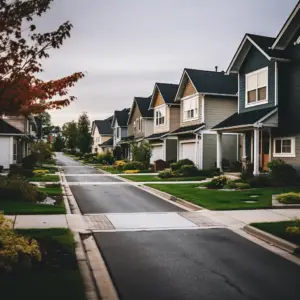Neighbors might engage in activities that bother, irritate and even throw fear in your way. Perhaps it is a loud argument, trespass on or damages your property, a noisy party, etc. When a noise ordinance has been violated, calling the cops on a neighbor is the last thing to do.
Some disturbances you might have to bear with it. But where do you get to draw a line between a normal annoyance and behavior that deserves the involvement of the Police? In the article, we assist you in understanding what you should do in response to noise from neighbors and what the law says. Please stick with us to the end.
Table of Contents
What to Consider Before You Call The Cops For Noise

Which Laws Are Being Broken
There are state and local laws to solve the noise menace in the community. Ensure you do a bit of investigation before calling on the relevant authorities, for instance, whether there are limits for noise that must be adhered to.
Here is a case whereby your neighbor plays loud music at 10 a.m., but as per the noise ordinance, it doesn’t restrict noise past 8a.m, you would have minimal reason to bring in the law enforcement authorities.
Evidence
Gather evidence to support your case, like recording what you can hear from your property boundaries and getting to know the views of the other neighbors.
Fear of Identity Disclosure
The concerns of the victims, realizing you are the one behind the reporting, are valid and understandable. Some police departments permit anonymous tips, although it lessens the efficiency in following up or calling witnesses based on their system setup.
It might be your interest to go public (report in your name) or keep a low profile (keep your identity private).
Engage your neighbor before involving the authorities
Calling the cops on your neighbor should be the last resort, especially with a low-level offense such as loud music. Try and reasonably talk to your neighbor so that he may not even know that you’re affected by their noise, then wrap up with a statement of what you want.
Other available Options other than Police
You might need to consider other avenues like the local support networks such as neighborhood associations, landlords, door attendants, etc.
Noise and What Noise Disturbance Means
Noise is among the top four concerns. It disrupts the residential and business activities. Consistent subjection to noise can cause psychological stress, damaging hearing at extreme levels.
What is Noise Disturbance?
Any sound that is unpleasant, disagreeable, bothersome, loud, noisy, unexpected for the time of day or location, and harmful to anyone’s comfort, safety, and health is called “Noise Disturbance.”
In multi-family and townhouses, noise during quiet hours is forbidden. Police regulate motor vehicle noise under the motor vehicle law.
Resolving Noise Control, Determine who to contact to file your case.
Guidelines to reduce noise
Regardless of where you come from, you can help keep the environment quiet. Follow these guidelines:
- Make use of control tools in your home, garage, or outdoor during day time
- Monitor the volume of your appliances like radios, TVs, stereos, and other sound-producing electronics
- Reduce outdoor activities that might generate undue noise
- Take care of your pets
- When selecting equipment and appliances, choose “Buy quiet.”
- Ensure everyone complies with the quiet hours
When to Call the Cops
You can involve the Police after you have exhausted all self-help remedies. Your neighbor is always on the wrong side of the law, even if it is a misdemeanor like playing music or noise-making over the recommended under the ordinance.
A misdemeanor means that the state has a possible legal claim against your neighbor and is compensated financially for the damages caused.
After calling the Police, they are likely to come to your neighborhood and conduct an investigation and engage your neighbor in question to collect more information.
You might be asked to appear as a witness in court, file a report, or the Police may ask your neighbor to cease the behavior or make an arrest.
Often having an officer show up concerning a noise complaint is enough to get most people to tone down. Most areas have noise ordinances and revisit from the police results in fines or misdemeanor charges.
Noise complaint

Suppose the offending noises are threatening, like gunshots, fireworks, or objects breaking or thrown (kinder there is domestic violence occurring). In that case, you should call the cops to dissect and ensure that others are safe.
On non-threatening noise complaints, the idea of calling the Police should come as a last option. First, it would be better to confront your neighbor about the noise to keep a good personal relationship with them. At least, it is the “neighborly” thing to do when convenient.
However, you aren’t obligated to speak to them before calling the cops for neighbors who are intimidating and frightening.
For obnoxious neighbors, calling up Police on them could escalate the dispute to an aggressive confrontation. Assess the damage caused to your house or property before filing a noise complaint but be aware of following up with the Police should such retaliation occur.
It is noble to have evidence like noise recordings and set up a surveillance camera to protect yourself against retaliatory damage to your belongings.
Nuisance Suit
If your area of residence has no laws against noise, the Police are reluctant to take any action, or worse, feel the cops aren’t doing enough; you can file a lawsuit against a noisy neighbor on the nuisance theory.
You will have to verify your case by proving that there is excessive and disturbing noise from your neighbor, that the neighbor is making the noise, how the noise has affected you, and that you have tried to resolve the case diplomatically with the neighbor to no success.
Lastly, express how the noise has harmed you, such as loss of tenants or business, to claim the damages caused.
It is easy to show the harm you suffer in a noise disturbance situation. Smartphones and apps can display noise in decibels, which can help you win in court.
Keeping a journal of when noise breaches occur, last, and whether the offending party is contacted is too much labor given the many hours of video or audio recordings. Remember that filing a noise complaint is different from proving your situation warrants police assistance. The choice is yours.


